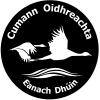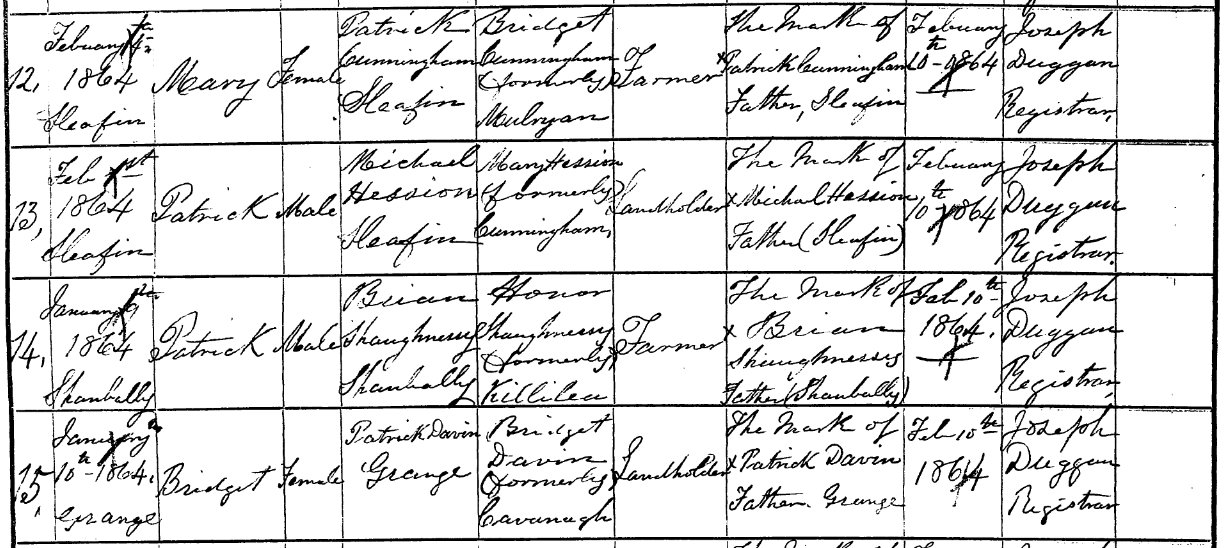Science Bringing Genealogy to the Technological Generation
By Irene McGoldrick
Family history research has been given a new lease of life thanks to advances in science and technology, meaning that it is easier than ever before to trace your family tree. Up until recent years, researching your ‘roots’ meant spending hours looking at historical records in musty libraries. Nowadays you can start tracing your family tree from the comfort of your own sitting room, mobile phone or tablet in hand.
The best place to start is with the 1901 and 1911 censuses, both available for free at census.nationalarchives.ie.
In the past few years, the Registrar General’s Office has published birth, marriage and death civil records which are also available for free at irishgenealogy.ie, and currently include births for 1864-1916, marriages for 1845-1941 and deaths for 1864-1966.
Church records have also been made available free of charge; Annaghdown records can be found on registers.nli.ie/registers/vtls000631988 for 1834-1880 with some gaps. While these records are not currently searchable, many commercial genealogy sites offer the records with a search function. One such site is findmypast.ie where the records can be searched for free when you sign up for an account.

One of the most important advances in family history research is the recent addition of DNA testing, which can help you to connect with relations with whom you share DNA, all over the world.
There are a number of commercial companies that offer DNA testing. Your DNA is collected using either a cheek swab (a simple ‘cotton bud’ swab taken from inside your cheek) or through a saliva sample. DNA is then analysed and results are provided within a two month time frame.
While there are a number of different types of DNA tests, the most valuable test to identify relationships within the past seven generations is autosomal DNA testing. We each inherit 50% of our DNA from each parent, who, in turn inherited 50% from their parents and so on. Autosomal DNA testing will compare your DNA sample against their database and will return a list of people who share DNA with you, indicating a common ancestor. The more DNA that you share the more closely you are related.
A number of people from Annaghdown or with Annaghdown heritage have already had their DNA tested. We have recently set up a DNA project for the Annaghdown area to study the relationships in the locality. Already we have identified emigration pathways from Annaghdown to Invercargill in New Zealand, Portland Maine, Boston, New York, and many other places around the world, connecting families that have been separated for generations as a result of poverty, famine and the hopes of a better life.
Commercial DNA companies have developed websites that are easy to navigate, in the knowledge that most people who test will not have a scientific background or knowledge of how genetics work, making them very accessible to the general public. DNA tests have fallen in price, making them very affordable, and they run sales regularly reducing the cost even more.
For anyone with even a passing interest in family history, we encourage you to get in touch with us and we will be happy to give advice on how best to trace your family tree. If you would like to test your own DNA or that of a family member but are unsure how to proceed or feel you don’t have the computer skills to manage your kit, we can advise on this and manage your kit for you, if you prefer. If you do decide to test your DNA, please let us know and we can add you to the database of Annaghdown DNA. You never know what you might find!
This article first appeared in our Summer 2018 Newsletter.



Just received my DNA thru ancestry and using tree there would like to see how I might share with those in Annaghdown. My Burke, Flaherty, and Oneil families as well as aligned families are in my tree
Sooooo. happy to find 46 percent in Ireland !
Confirming my belief that my paternal side were all from Ireland. (Including Cantwell and Hurley who are not believed to come from Galway as are the above named families in annaghdown)
Please visit ancestry.com and search my family by using my fathers name: William Martin Campfield
And from there his ancestors
Saundra Campfield Carr